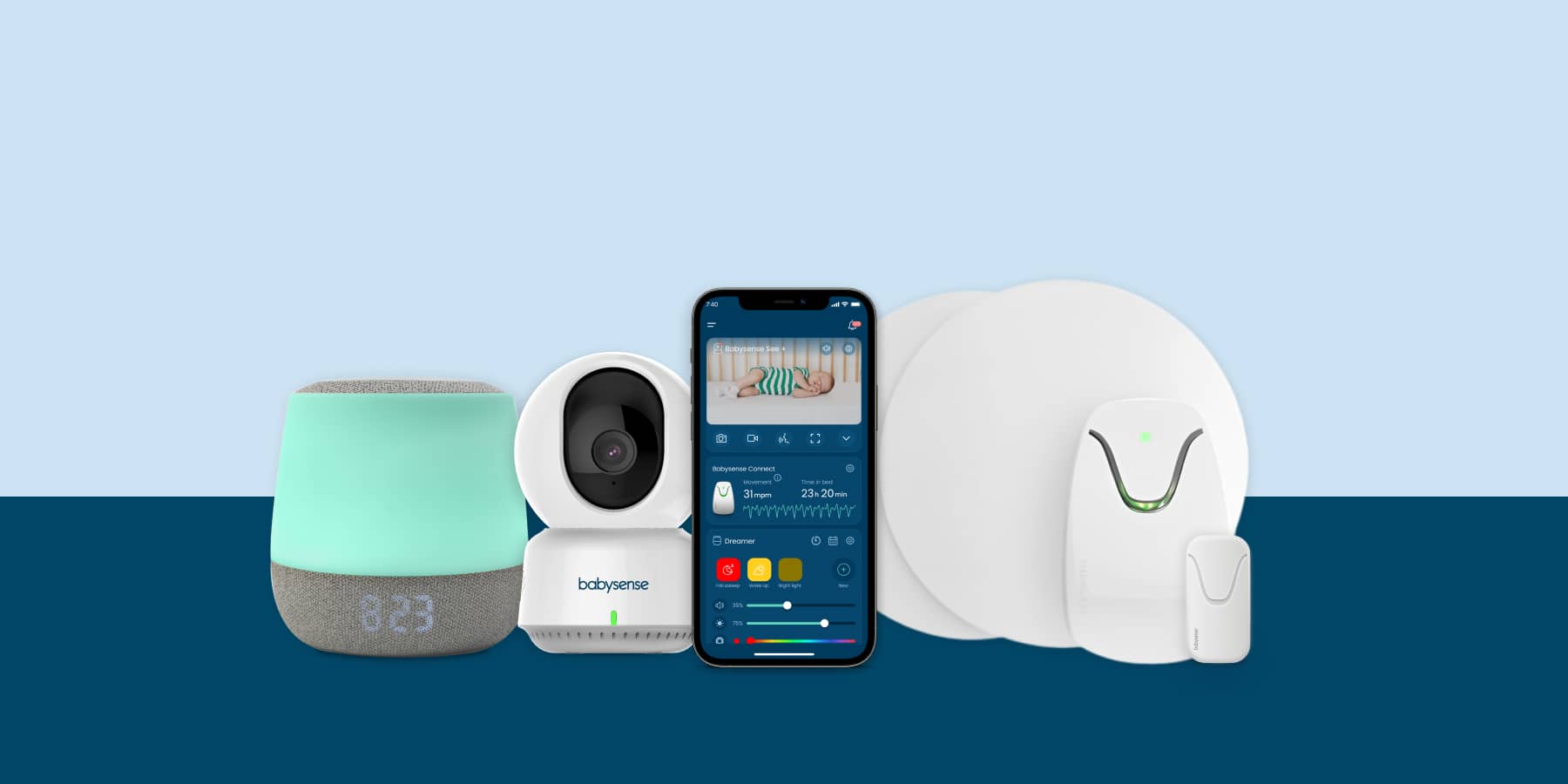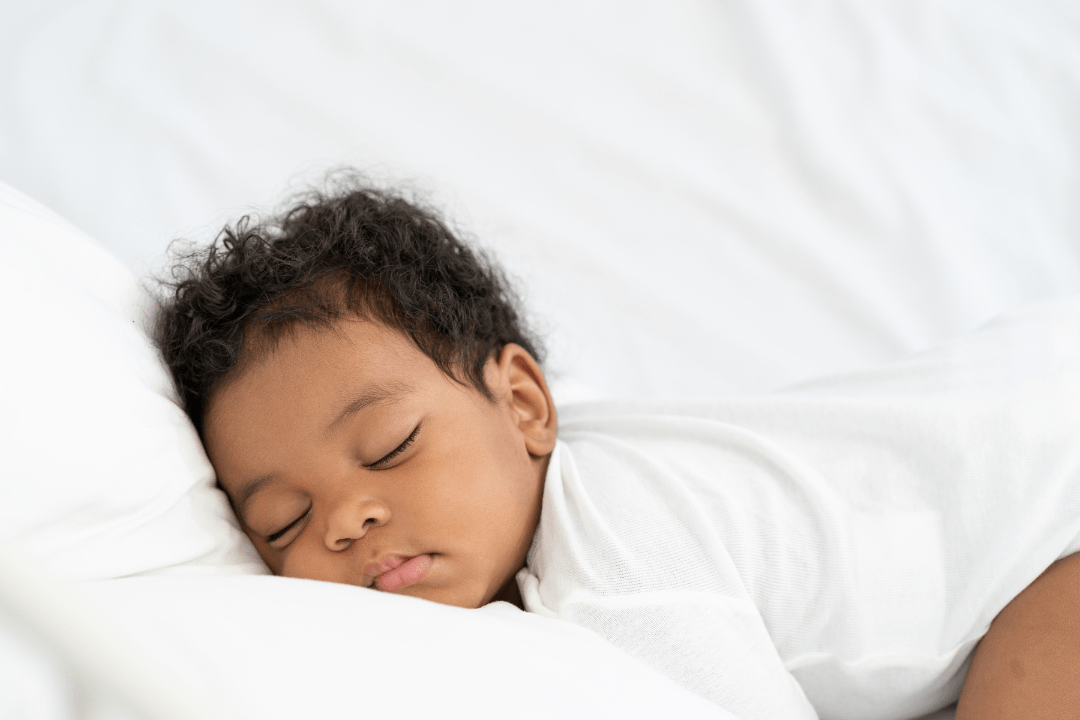What exactly is happening when a baby is sleeping?
Have you ever wondered, "Why do babies sleep so much?" You're not alone! It's a question that perplexes many new parents as they observe their newborns dozing off for hours on end. The science behind baby sleep patterns is fascinating and understanding it can provide valuable insights into your little one’s development. To start, did you know research shows that newborns spend most of their time in light non-rapid eye movement (NREM) sleep stages for shorter durations before entering deep NREM and then REM stages when they become sleepy again.
Cracking the Code: How Baby Sleep Works
To decode the mystery of why babies sleep so much, we need to dig into the fundamentals of growth and development during infancy. Sleep, especially the deep, restorative kind, is a fundamental element in these processes.
Within the first few months of a baby's life, an astounding amount of growth and brain development takes place. It is during this period that babies grow rapidly and their brains form new connections at a fast pace. This substantial growth and developmental spurt demands a significant amount of energy. That's where sleep comes in.
While babies are sleeping, their bodies are hard at work. Vital physiological activities take place during this time. For instance, the secretion of growth hormone is at its highest during sleep. This hormone aids in increasing bone length and muscle mass, key components of physical growth.
In addition to bodily growth, sleep is also crucial for brain development. During sleep, the brain processes the sensory information babies encounter while awake. This sensory processing helps babies to make sense of their surroundings and supports their cognitive development.
Deep sleep is also vital for memory consolidation. Information and experiences gained during wakefulness are transferred from short-term to long-term memory during deep sleep. This is important for learning new skills, recognizing faces, and understanding language.
Also, it's worth mentioning that sleep aids in the overall well-being of a baby. Restful sleep supports a robust immune system, which is essential for fighting off infections and illnesses. Moreover, well-rested babies are generally happier and have better temperaments than sleep-deprived ones.
In essence, sleep is not merely a time of rest for babies, but a period of intense growth and development. It's a time when their bodies are growing, their brains are evolving, and they are preparing themselves for the discoveries of tomorrow.
Exploring the Stages of Baby Sleep
Much like their parents, babies experience different stages of sleep. However, these stages and their sequences are distinct in several ways. The sleep cycle of a baby is comparatively shorter, roughly around 50 minutes, while an adult's sleep cycle extends to about 90 minutes.
A baby's sleep journey begins with a period of drowsiness, which eventually leads into a stage of light sleep. This light sleep stage often triggers observable reactions in babies such as twitching, grimacing, or even making sucking motions. Following this phase, babies enter the deep sleep stage. This is the time when their little bodies are still, and their breathing pattern becomes rhythmic and regular.
The final stage is the REM (rapid eye movement) stage, often associated with dreaming. Intriguingly, babies spend nearly half of their total sleep time in this REM sleep stage, a factor that is significantly linked to brain development. This extensive period of REM sleep can help explain why babies have such a high sleep requirement.
However, remember that all babies are unique, and there can be slight variances in the sleep stages and patterns from one baby to another. But understanding these general stages can equip you with a greater awareness of your baby's sleep patterns and needs. It can also help you determine if your baby is getting the necessary amount of deep, restorative sleep for their development.
What is worth mentioning here is that as much good sleep does for your baby, that lack thereof is true. Poor sleep in early childhood has been linked to allergic rhinitis and problems with the immune system.
The Age Factor: How Baby Sleep Changes Over Time
As infants transition into toddlerhood, their sleep habits undergo a dynamic transformation. When they are newborns, their sleep isn't concentrated in one long stretch. Instead, they take multiple short naps throughout a 24-hour period, amounting to a total of 16 to 20 hours. This frequent sleep pattern is primarily because their tiny stomachs require constant refueling with feedings.
As babies grow, their sleep patterns start shifting. The quantity of daytime sleep gradually decreases, and the period of nighttime sleep lengthens. You may notice by the time your little one reaches six months, the sleep pattern begins to resemble that of an adult. Most six-month-olds snooze for around 10-12 hours during the night, along with a few naps scattered across the day.
The transition continues as your baby celebrates the first birthday. At this stage, your baby's sleep is more consolidated. You can typically expect two well-defined naps during the day, and a continuous sleep period of 11 to 14 hours at night.
It's noteworthy to remember that these patterns aren't rigid and might vary slightly from baby to baby. These are merely general guidelines to help you anticipate the changes you might observe in your little one's sleep habits as they grow older.
Creating the Best Sleep Routine for Your Baby
Establishing a consistent sleep routine for your baby can be extremely helpful for both you and your little one. Consistency in sleep and nap times can help regulate your baby's body clock, and condition them to anticipate and adapt to their sleep schedules.
Start by setting regular hours for naps and bedtime. This creates a routine that your baby can get used to. Incorporating pre-sleep activities, such as a warm bath, reading a story, or singing a lullaby, can serve as calming signals that it's time for sleep. These activities not only help soothe your baby but also create cherished bonding moments.
An important aspect of your baby's sleep routine is learning to self-soothe. This involves allowing your baby to fall asleep independently without being rocked or fed to sleep. Developing this skill is important because it enables them to self-settle if they happen to wake up in the middle of the night.
Experimentation is key in this process. Every baby is unique, and what might work effectively for one might not have the same results with another. It might take a bit of trial and error to find the routine and techniques that best suit your baby's temperament and your family's lifestyle.
Additionally, maintaining a sleep-friendly environment can significantly enhance your baby's sleep routine. This includes ensuring the room is dark, quiet, and at a comfortable temperature. It's also a good idea to use a firm and comfortable mattress and keep the crib free of unnecessary items like toys, pillows, and blankets.
Finally, remember that patience is key when it comes to establishing a sleep routine. It might take a while for your baby to adapt to the routine, but consistent reinforcement can greatly aid this process.
Remember, sleep plays a significant role in your baby's growth and development. By setting up an effective sleep routine, you're providing your baby with the essential rest they need to thrive and grow. You're also paving the way for healthier sleep habits that can last a lifetime. So as you navigate the ups and downs of establishing a sleep routine, always remember that each step brings you closer to ensuring your baby's optimal health and development.
Sleep Safety and Your Baby
Keep in mind that a clutter-free crib makes for a safer sleep environment. Excess items such as toys, blankets, and pillows should not be in the crib as they may pose a risk for suffocation or overheating. A simple rule of thumb is to keep the crib as minimalist as possible. Remember, less is more when it comes to baby's sleep safety.
Understanding your infant's sleep behavior can be your guiding compass in ensuring they are getting adequate, safe sleep. While it may feel like your little one is sleeping most of the day away, bear in mind that they are busily growing, learning, and processing all the new experiences from their waking hours.
At those late-night awakenings, remember, this is merely a transitory phase. It's a period of immense growth and development for your baby, and your loving care contributes to their well-being. The understanding and patience you provide to your well-rested baby during these early sleep patterns set the stage for a lifetime of healthy sleep habits.








